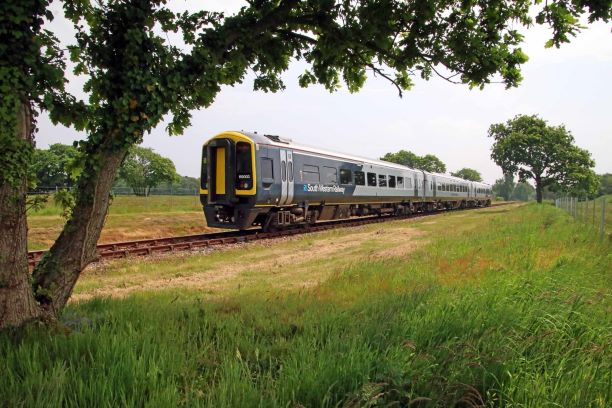FOLLOWING the announcement of industrial action dates by the RMT union, South Western Railway services will be significantly affected between Tuesday 21 and Saturday 25 June.
SWR is working closely with Network Rail and other train operators to finalise a significantly reduced timetable for those dates, but is warning customers to expect severe disruption on days impacted by industrial action.
With Network Rail signallers and more than 2,100 SWR RMT members taking industrial action, it is likely that significant parts of the South Western Railway network will be unavailable for travel on those dates. Where routes are open, it is likely that far fewer trains will run than normal.
As a result, customers are urged to change their travel dates if they can and, for those who have to travel on those dates, to begin looking for alternative methods of transport.
Teams are also working to update hospitals, schools, airports and businesses across the network on what this will mean for them.
Claire Mann, Managing Director of South Western Railway, commented: “I understand that the announcement of upcoming industrial action will worry many of our customers, particularly against the backdrop of significant cost of living pressures. We are carefully finalising contingency plans, but I’m afraid this action will mean that many customers will be unable to travel by rail. If customers can change their date of travel, or make alternative arrangements, I urge them to begin making those arrangements as soon as possible.I appreciate how challenging this may be and would like to thank customers for their patience as the rail industry responds to this unprecedented industrial action.”
SWR will publish details of its reduced timetable when finalised and customers should check the website for latest updates: https://www.southwesternrailway.com/industrial-action.
Jeremy Varns, Campaign Coordinator, SWR Watch responded: “It’s highly disappointing to learn that the RMT plans three days of industrial action later this month. The railways are still recovering from lockdowns, changing work patterns and a corresponding drop in income. The government and taxpayers have helped to protect jobs and services within the industry, but clearly, this cannot continue forever without reform and modernisation. We’re often told that strikes are a last resort, yet General Secretary, Mick Cash, appears to be relishing the chance to ‘shut down’ the network, seemingly indifferent to the impact this will have on passengers.
While many of our followers may disagree with my position on this planned industrial action, there is almost universal agreement that the government must do more to energise the sector post-Covid. Rail has to potential to transform our transport infrastructure, moving away from an unsustainable reliance on private cars to cleaner, greener modes of travel. Greater investment and certainty of funding are needed to capitalise on the changing political landscape and public awareness of environmental matters. Such a policy would bring more jobs, more services and lower fares.
Yet, train travel is currently too expensive, and the unions must accept some blame for this. Their leaders are regularly harping on about excessive profits and the need for full renationalisation, yet the simple, inconvenient truth is that the operational costs of the industry need to fall. How much more must passengers pay to meet the RMT’s current demands? Where do they think this money is coming from if not us? Staff should be paid fairly, and the cost of living crisis is of concern to us all. But my message to striking rail workers is this; preventing those who rely on a functioning train service from making a living themselves is not the way to make your point. Retailers, those travelling to school, college, university, or seeing loved ones are not to blame yet they are being targeted by your action. I’d also urge the RMT leadership to get back to the negotiating table and to do so in good faith. Striking is a sign of failure on all sides, not cause for celebration.”






